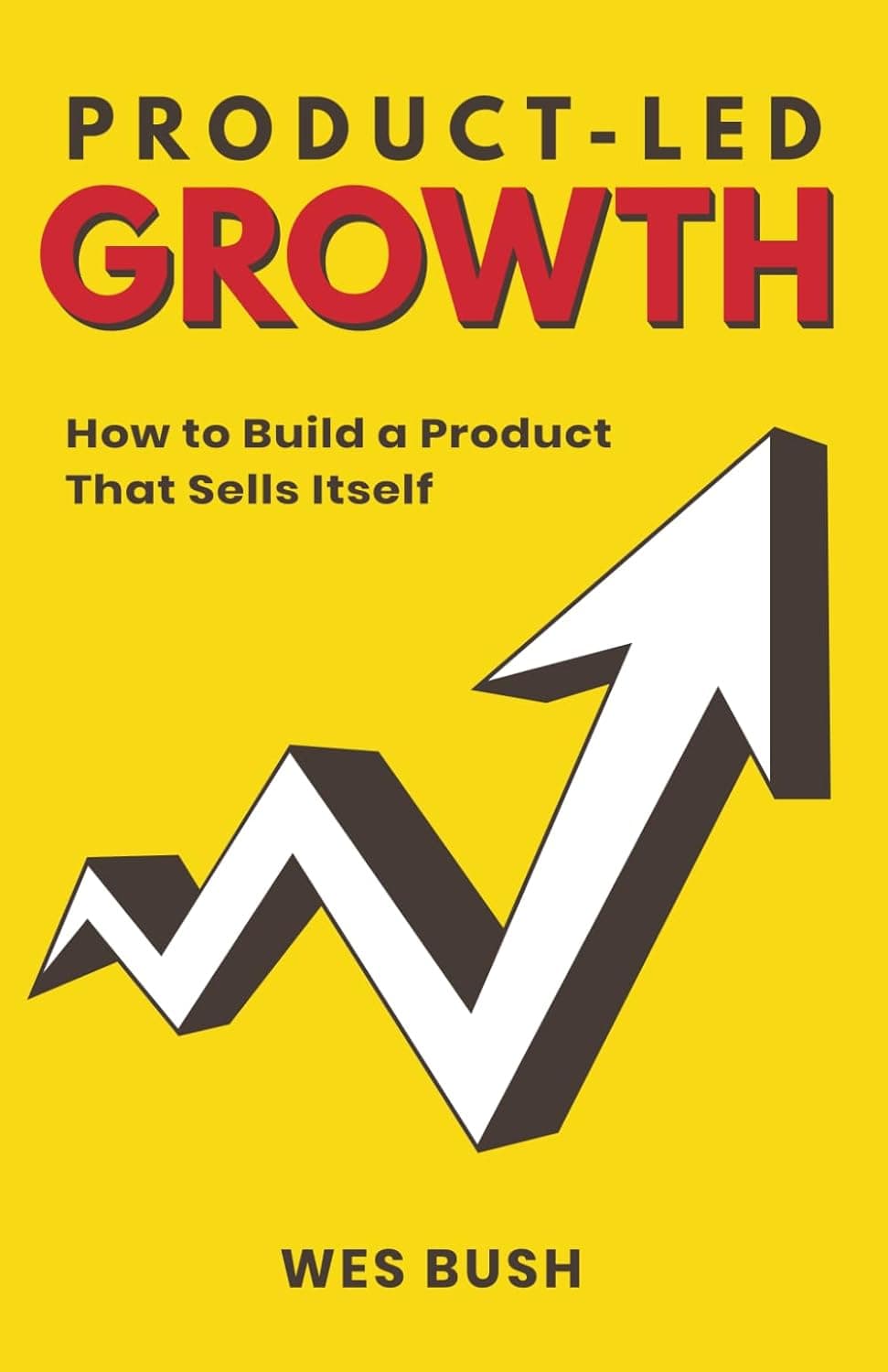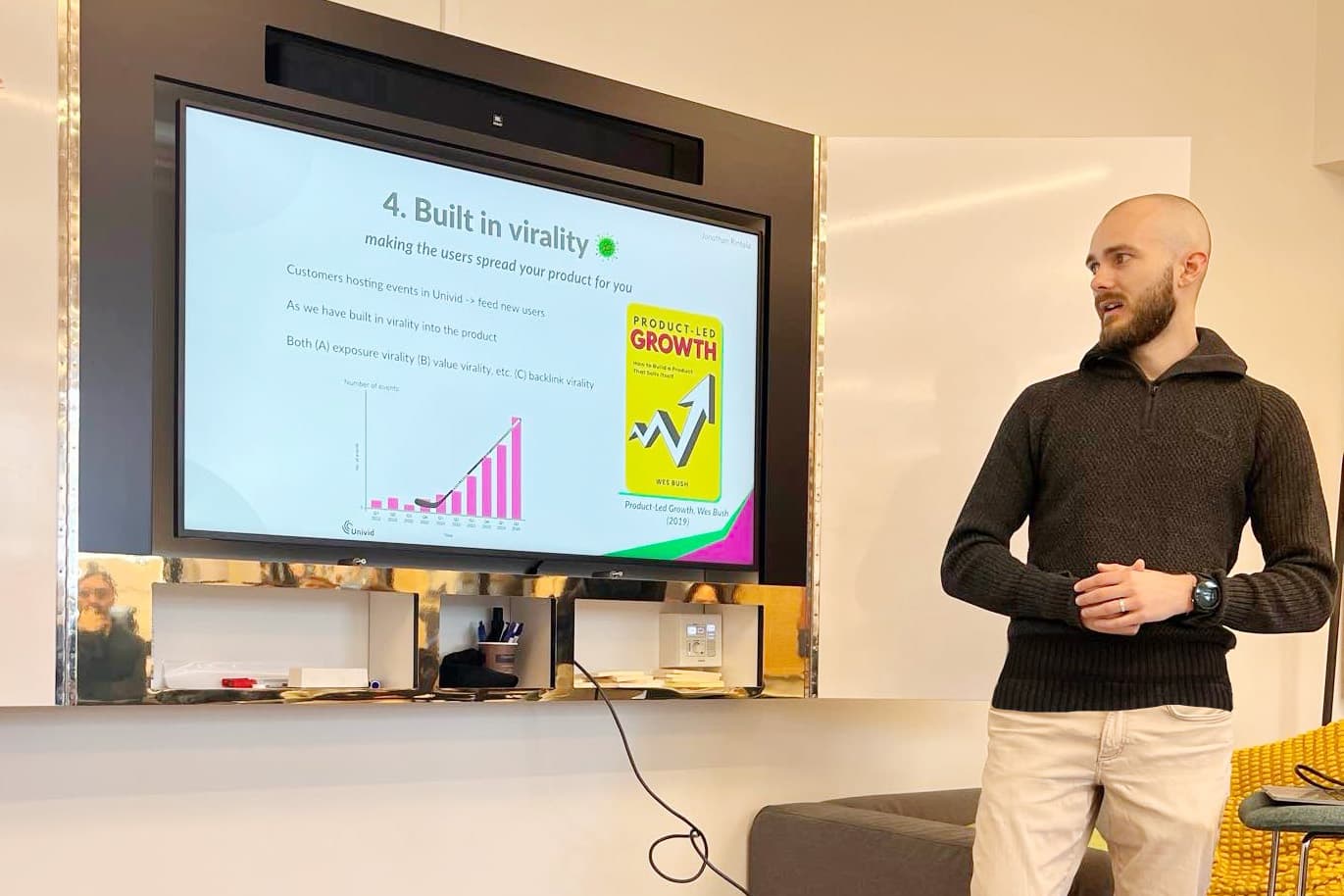Product-Led Growth - Summary and review

🚀 Summary: Product-Led Growth in 30 seconds

Contents
The importance of pricing
Pricing is like volleyball. It's easy to stand around and watch the ball being dropped in the middle.
And, pricing touches all parts of the business:
Marketing
Sales
Product
Value metrics
What is a value metric?
A value metric is the way you measure value exchange in your product.
Examples of value metrics:
Is it messages sent?
Number of users?
Total revenue generated?
How to find value metrics
Method 1: Subjective analysis
Write down all possible value metrics - run them through the value metrics scratch pad by Openview
Method 2: Data-driven approach
Vet results in subjective analysis
To get meaningful insights out of your product data, look for patterns among your best and worst customers. For instance, ask yourself these questions when analyzing your data:
What do my best customers do regularly in the product?
What do my best customers not do in the product?
What features did my best users try first during onboarding?
What similarities among my best users - demographics, team structure, ability - led to success?
Churn analysis - to find value metrics
For churned customers, ask:
What were some of the main differences between their user journey and that of your best customer?
Specifically, what activities were different? What outcomes did your churned users achieve and not achieve?
Were these churned customers in your target market?
Why did the majority of these customers churn?
When trying to answer these questions, go through your product data to validate EVERYTHING. After you’ve come up with several viable value metrics, stress test their potential.
Your best customers - to find value metrics
For your best customers, ask:
What do they do regularly in the product?
What do they not do in the product?
What features did they try first during onboarding?
Similarities amongst them - demographics, team structure, ability - led to success?
Examples of value metrics
Is it messages sent?
Number of users?
Total revenue generated?

Me giving talk on Growth Hacking at KTH Innovation - Referring to in product virality and the PLG book by Wes Bush
Tracking growth
Going PLG means you should start tracking growth, if not doing it already. Tracking KPIs help you follow your progress and make sure you put effort where it matters.
Key growth metrics to track
Some of the key growth metrics you want to include are the following:
revenue generation
cost per lead
cost per customer acquisition
conversion rates
the number of active users
"Truly great SaaS companies are built to be product-led."
- Wes Bush
3 reasons why Sales-Led Growth is broken
Here are three reasons why Sales-Led Growth (SLG) is broken.
1. High CAC: You don't pay for product quality
Sales-Led products are expensive. But expensive is not a problem if the product is more valuable Ie. you get a product of higher quality.
The problem is, the premium price of sales-led products is often NOT because of a superior product quality. But rather, because the acquisition model (CAC) is more expensive when running Sales-Led Growth (SLG).
Do you want to pay because it's expensive selling to you, or because the product is of higher quality?
2. Leaky customer acquisition model
Sales-led organizations inherently have inefficient customer acquisition models. There are a few reasons for this:
Marketers are incentivized to gate content
Content consumption is used as a leading indicator
SLG rewards introducing friction in the buying process.
"98% of marketing-qualified leads (MQLs) never result in closed business."
- SiriusDecisions
Also, SLG leads to a disconnect between marketing and sales.
3. A divided org structure
SLG leads to a broken organizational structure that hinders great product development.
Profit centre:
Sales
Marketing
Customer success
Cost centre (creates product:
Engineering
Product

Need cheat codes to grow your SaaS in 2026?
The startup founder's playbook to hack growth on Reddit. Proven tactics to:
- ✅ Find high intent buyers for your SaaS
- ✅ Get large exposure to relevant prospects
- ✅ Show up in AI search and Google without SEO
- ✅ Get deal flow from Reddit
Buy the book: Product-Led Growth 👇
If curious in more, you can buy the full book on Amazon: Print | KindleFrequently asked questions (FAQs)

Q: Who is Wes Bush?
Wes Bush, is the founder and president of the Product-Led Institute, and the bestselling author of Product-Led Growth. Wes has successfully built demand for several high growth companies, including attracting over 100,000 users in less than one year for video SaaS company Vidyard.
Want to learn more about growing SaaS companies?

